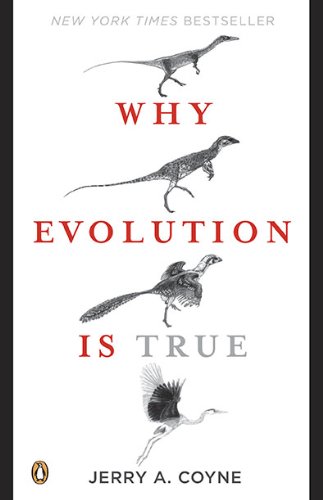Bacteria Evolve to Process Lactose in a Test Tube
But “laboratory” adaptations can also be more complex, involving the evolution of whole new biochemical systems. Perhaps the ultimate challenge is simply to take away a gene that a microbe needs to survive in a particular environment, and see how it responds. Can it evolve a way around this problem? The answer is usually yes. In a dramatic experiment, Barry Hall and his colleagues at the University of Rochester began a study by deleting a gene from E. coli. This gene produces an enzyme that allows the bacteria to break down the sugar lactose into subunits that can be used as food. The geneless bacteria were then put in an environment containing lactose as the only food source. Initially, of course, they lacked the enzyme and couldn’t grow. But after only a short time, the function of the missing gene was taken over by another enzyme that, while previously unable to break down lactose, could now do so weakly because of a new mutation. Eventually, yet another adaptive mutation occurred: one that increased the amount of the new enzyme so that even more lactose could be used. Finally, a third mutation at a different gene allowed the bacteria to take up lactose from the environment more easily. All together, this experiment showed the evolution of a complex biochemical pathway that enabled bacteria to grow on a previously unusable food. Beyond demonstrating evolution, this experiment has two important lessons. First, natural selection can promote the evolution of complex, interconnected biochemical systems in which all the parts are codependent, despite the claims of creationists that this is impossible. Second, as we’ve seen repeatedly, selection does not create new traits out of thin air: it produces “new” adaptations by modifying preexisting features.
Notes:
Scientists blocked a gene for digesting lactose in bacteria, which then mutated to have the digestive function taken over by another gene producing an enzyme, which then got progressively selected for efficiency.
Folksonomies: evolution experiment
Taxonomies:
/health and fitness/disease (0.534835)
/science/medicine/genetics (0.475053)
/science (0.411728)
Keywords:
lactose (0.913586 (negative:-0.562918)), gene (0.765430 (negative:-0.483025)), biochemical systems (0.688327 (positive:0.361691)), new biochemical systems (0.682412 (positive:0.361691)), Test Tube Scientists (0.682149 (negative:-0.616735)), Process Lactose (0.659964 (negative:-0.616735)), bacteria (0.611272 (negative:-0.337537)), previously unusable food (0.579392 (negative:-0.745191)), sugar lactose (0.577824 (negative:-0.793233)), complex biochemical pathway (0.576631 (positive:0.309812)), interconnected biochemical systems (0.574941 (neutral:0.000000)), Bacteria Evolve (0.543669 (negative:-0.616735)), geneless bacteria (0.478099 (neutral:0.000000)), enzyme (0.432076 (negative:-0.192144)), new enzyme (0.415377 (positive:0.244219)), different gene (0.406209 (negative:-0.562694)), digestive function (0.368617 (negative:-0.306887)), new mutation (0.363475 (negative:-0.792095)), E. coli (0.348530 (negative:-0.700993)), particular environment (0.346538 (positive:0.225049)), Barry Hall (0.338038 (neutral:0.000000)), short time (0.327884 (negative:-0.630522)), important lessons (0.318423 (positive:0.418838)), food source (0.311369 (negative:-0.340324)), natural selection (0.302975 (positive:0.647586)), new traits (0.296511 (neutral:0.000000)), evolution (0.262570 (positive:0.396983)), experiment (0.237052 (neutral:0.000000))
Entities:
Test Tube:Technology (0.791759 (negative:-0.616735)), Barry Hall:Person (0.773021 (neutral:0.000000)), E. coli:FieldTerminology (0.721614 (negative:-0.700993)), University of Rochester:Organization (0.672346 (neutral:0.000000))
Concepts:
Natural selection (0.981566): dbpedia | freebase
Evolution (0.948810): dbpedia | freebase | opencyc
DNA (0.755770): website | dbpedia | freebase | yago
Metabolism (0.745878): dbpedia | freebase
Bacteria (0.693543): dbpedia | freebase | opencyc
Genetics (0.684577): dbpedia | freebase | opencyc
Mutation (0.657906): dbpedia | freebase
Enzyme (0.616473): dbpedia | freebase | opencyc





